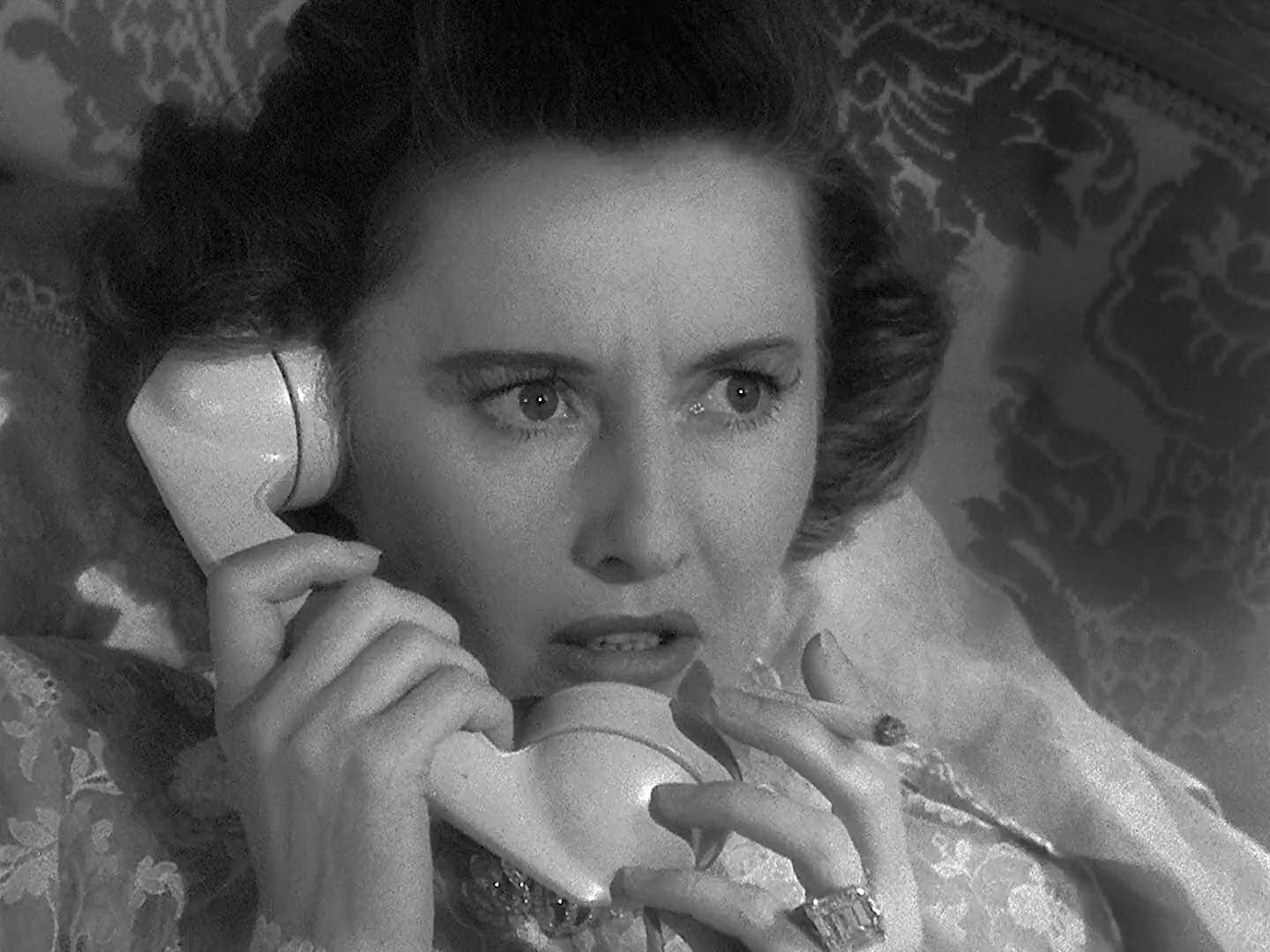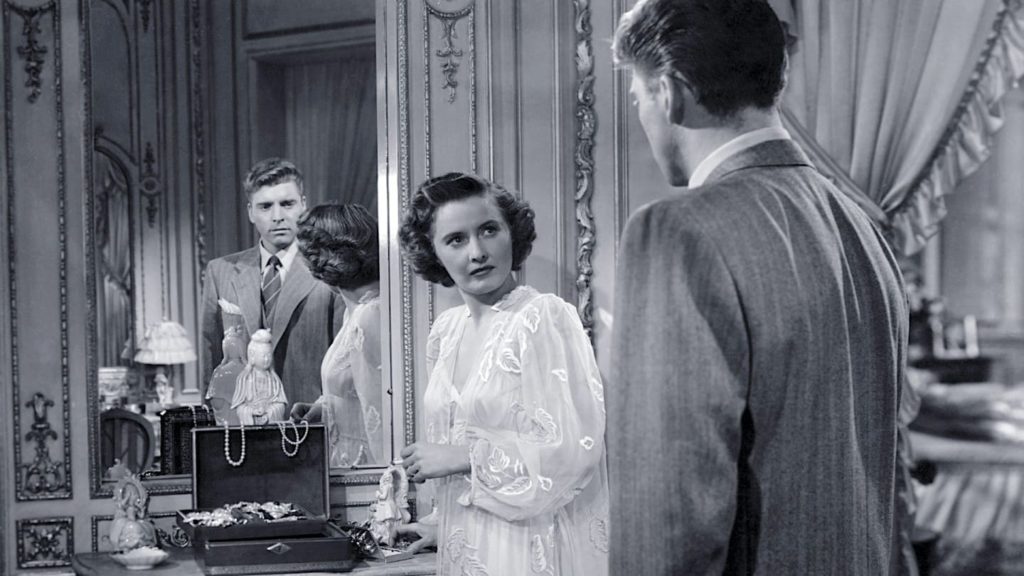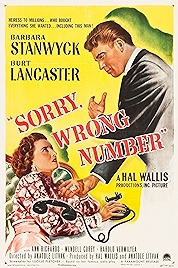Sorry, Wrong Number, made in 1948, is a superbly melodramatic drama taking the brittle, “dangerous dame” image of its star, Barbara Stanwyck, for a protracted ride.
Four years earlier Stanwyck had starred in Double Indemnity as the manipulative minx persuading poor schmuck Ed McMurray to kill her husband, and here she is in Sorry, Wrong Number as a victim, a bed-ridden rich woman who, on a crossed line while telephoning, overhears two men discussing a murder they’re going to commit later that night. The servants have been given the night off, her husband is away, but Leona Stevenson (Stanwyck) isn’t initially that worried. But as the night progresses and as she makes and receives increasingly agitated phone calls – to the operator, the police, an old acquaintance of her husband, a mystery man who tells her eye-opening things – Leona becomes convinced that the mystery person who’s going to be killed is none other than Leona herself. If only someone would believe her. If only her husband would come home.
Burt Lancaster plays Leona’s husband, Henry, and if our feelings for Leona morph as the 90 minutes of this taut drama play out, our attitude to Henry also alters. He starts out as the poor guy who marries a rich man’s daughter, is completely dominated by her and her father and then, in an attempt to mark out his own territory, starts to do things he shouldn’t.
We’re on Henry’s side, initially at least. And it’s easy to side with him. Leona is controlling, belittling and even after she’s been struck down by a heart condition that confines her to bed, a real piece of work.
The film can be divided up into two spheres of operation – the bits where Leona is in her bedroom, all shot chronologically from soup to nuts in an exhausting 12-day splurge – and the rest of it, which consists of flashbacks (and even flashbacks within flashbacks), detailing how Leona and Henry got to where they are now.
Each time the action dissolves back to Leona in her bed our feelings towards her have changed, sometimes hardening – you mean the illness mightn’t be physical at all!? – but mostly becoming more sympathetic to her situation and fearful about her prospects.
Stanwyck, a proper lip-quiverer who could do hand-wringing histrionics like almost no one else, grades her performance carefully, building towards the brilliant climax when events and sympathies spill into each other in one of Hollywood’s most dramatic climactic moments.
There’s neurosis, paranoia and naked fear on display in Sorry, Wrong Number, and both Stanwyck and Lancaster get their opportunity to emote – though this is her show not his – while Franz Waxman’s score never leaves us in any doubt where we need to be on the emotional scale. Waxman is particularly good as Leona starts to work out that she’s the target, filling in gaps in the plotting with surging music that’s doing our thinking for us.
The DP is Sol Polito, a fantastically versatile cinematographer as adept at full-spectrum Technicolor (The Adventures of Robin Hood) as he was with subtle monochrome (Now, Voyager). He’s subtle here, with lighting that’s also emotional in intent – that cosy pool of light around Leona’s bed, shading out to darker unknowns.
The story was well known at the time, having been a famous radio play in the days when radio was king, and had already been a TV movie in 1946. It’s been remade at least ten times since – there are Hungarian, German, Swedish, Finnish and British versions – but none of the remakes has got anywhere near the impact of the original. Everyone here is at the top of their game.
Sorry, Wrong Number – Watch it/buy it at Amazon
I am an Amazon affiliate
© Steve Morrissey 2022


